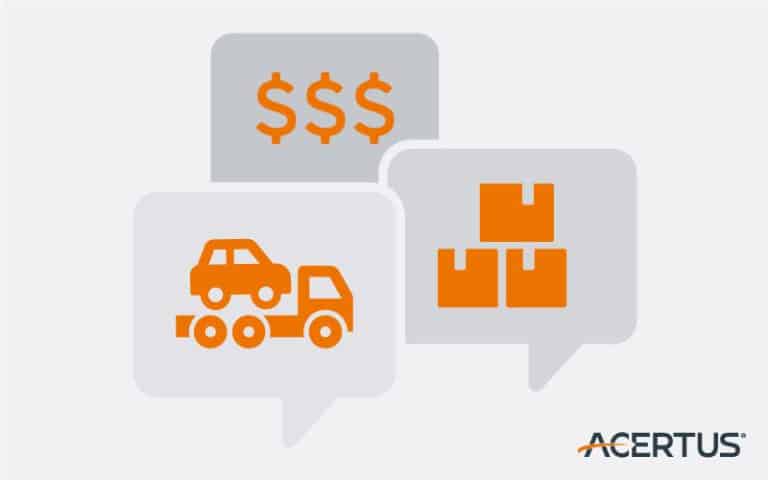Have you question “How To Negotiate A Relocation Package?” it is essential to calculate the costs. This will help you understand what you need and what you can afford.
How To Negotiate A Relocation Package?
Depending on the distance between your workplace and your new job, your employer may provide relocation assistance when you start a new job. Assisting you with this type of transition can make a big difference in the smoothness of your move. It can be helpful to negotiate a relocation package with your new employer before you begin your new job if you are relocating for a job. Our aim in this article is to help you understand what a relocation assistance package consists of and how to negotiate the best package for your needs.
What is Relocation Assistance
As part of relocation assistance, moving expenses, transportation costs, and other work-related fees are covered. In addition to financial support, you may receive other types of support, such as temporary accommodation or assistance in finding a new home. Relocation packages provide material support and a sense of security to encourage employees to accept work in distant areas. By attracting skilled personnel, the company improves both its reputation and its workforce.
What Does Relocation Assistance Include
Different companies offer different relocation packages. Therefore, relocation packages may differ from company to company. In general, you should consider the following:
1. Help with Housing Costs
Buying and selling homes, you may need financial assistance if you need to purchase a new home and sell your old home. Real estate commissions, closing costs, house hunting costs, and other fees may be handled by your company.
2. Travel Expenses
Before you finalize the deal, you will probably have many visits to and from your new workplace, and your company may be responsible for paying for them. The company may pay for your final trip with your family to your new destination by the time you are ready to do so.
3. Moving Personal Items
You are not the only one who needs to move. To move your furniture, you will need to disassemble, pack, unpack, ship, and reassemble it. Moving your items to your new location is part of your relocation package.
4. Temporary Housing Allowance
Having a temporary housing allowance is helpful if you are moving into a new city and don’t know where you will live immediately. It is possible that you won’t be able to get the house you want at the time you find it, so you have to wait. A temporary housing allowance is needed for this reason. Accommodation expenses while you hunt for a home would be covered by this allowance.
5. Auto Shipping Costs
Auto-shipping costs should be included with your relocation package. Find out if your company pays for your car shipping costs, and ask if they give you contacts to the auto relocation company and set up dates, or if you have to do it on your own.
Types of Relocation Assistance Packages
Relocation assistance covers a variety of expenses depending on the company and industry. There are several factors to consider, such as your skill level, the company’s budget, and the industry standard for relocation packages.
Here are the different types of relocation packages:
Lump-sum Relocation Packages
This method involves the company giving the employees the money upfront to fund and organize their move. As a result, the employee is responsible for any expenses incurred after the company does not contribute extra funds. Employees and companies usually negotiate the lump sum before a relocation begins. For this reason, it is essential to do your research before negotiating your relocation expenses.
Reimbursement Relocation Package
It is not uncommon for companies to offer relocation packages without knowing whether the employee will relocate. Companies often cap how much they can reimburse and require the employee to show receipts for all expenses incurred during the relocation. A company will not compensate an employee if he or she spends more than the amount cap.
Third-Party Relocation Packages
All relocation logistics are outsourced to another group or third party that handles the entire process instead of giving out a lump sum or trying to reimburse employees. New employees in a new city are sometimes offered guidance by the company.
Direct Management Relocation Packages
Large companies with frequently relocating employees use this method. The payment is a combination of reimbursements and lump sums, while they organize logistics and moving services and pay for them as well.
How to Negotiate Relocation Assistance?

Relocation benefits packages may include a few negotiating points. In some cases, employers may prohibit employers from paying more than a certain amount for the shipment of household goods.
Rather than only paying up to a certain dollar amount, you should negotiate with your employer to pay for the total cost of the shipment or put a cap on its size. You should be very cautious of capped dollar amounts and how they are established, as well as if they are sufficient to cover the cost of your relocation.
The costs to ship goods can differ dramatically from region to region, time of year, and the contents of the shipment. The company can also offer you ‘discretionary benefits, such as insurance, retirement plans, wellness programs, etc.
1. Determine and Outline Your Needs
Write down everything that you might need from a relocation package. Realistically, you have to figure in factors like breaking your lease early, any childcare needs, adaptations for disabilities, etc. Consider making a list of what matters to you and using it as the basis for your negotiation. Employers may be willing to compromise or offer alternatives even if you don’t get everything you ask for.
2. Research Your Options
Identifying what types of relocation assistance people in your situation are likely to require is the first step. Research your options to see if they cover tasks that you will be faced with during a relocation like disassembling furniture, unpacking, or reassembling. Make sure you include the costs of these tasks in your deal. As long as the costs don’t exceed thousands of dollars, you’re more likely to get what you request if you can back up your requests with cost examples.
3. Emphasize Mutual Benefits
Make sure your ideas benefit the company and you at the same time. Having a home quickly will enable you to accomplish more work, for instance. If your employer wants to offer you a specific item, he or she may be reluctant to do so in case other employees make similar requests in the future. Your employer may be able to change their mind about the element if you persuade him or her to do so. It might be possible to include storage costs under transportation if your employer does not normally include them in their relocation package.
4. Get the Agreement in Writing
Relocation agreements should be in writing. A simple email is fine instead of a formal letter. If you want your employer to pay for something, you should put it in writing. By organizing your time and planning your expenses, you’ll be better able to organize your time.
5. Check Taxes and Cost of Living in Your New Location:
Your new location’s taxes and living costs should be considered. Taxes are sometimes forgotten in all the excitement. What is the state and property tax rate in your new state compared to your old state? Do you think your new salary reflects that? In general, how does the living cost compare? Salary increases after you’ve signed a contract are unlikely, but you can ask for a disturbance fee-especially if you think the move will increase taxes and living costs.
Are Moving Expenses Tax Deductible?
So, let’s say that a $5,000 relocation benefit has been provided by your new employer to help cover the costs of your move. It costs much more to relocate yourself and your family. Can you deduct unreimbursed moving expenses?
Again, the TCJA makes moving expenses non-deductible in most cases. Moving expenses on your federal taxes are not deductible until 2025 unless you are active-duty military being ordered to a new permanent station. For more information about this deduction for active-duty military, see IRS Form 3903.
In a few states, moving expenses are still deductible on state income taxes. If you move out of commuting distance of your job, you can usually deduct moving services, travel and mileage, storage fees, and more. Most commuters define commute distance as 50 miles plus their current commute. Qualified moving expenses can be deducted in the following states:
● Massachusetts
● Arkansas
● California
● Hawaii
● New Jersey
● New York
● Pennsylvania
You can claim a deduction for moving expenses in your state by contacting your state taxing authority or tax advisor.
How to Ask for Relocation Package?
There is a high cost associated with relocation. According to the Allied Global Workplace Mobility Survey, relocating a single employee can cost up to $100,000.
As a result, companies are careful with their spending.
The smart employer recognizes, however, that once an employee is up to speed, the return on investment from that employee will far outweigh the upfront costs. If necessary, companies will spend a little money to reduce the training time (half your annual salary) to be productive and make that return.
This is the approach taken by the best companies. Onboarding programs are twice as costly for companies that get new employees up to speed the fastest, according to Allied.
You know you’re likely to provide a return for your future employer if you have an offer, so they’ll most likely lend a hand if it speeds up your productivity.
Ask what kind of relocation assistance they offer. It’s that simple. The worst they could say is “no.”
Relocation Assistance: When Should You Seek It?
Unless you have the offer, it will be pointless to ask for anything specific. Logistics play a bigger role in relocation assistance than job fit. It’s ultimately more important for the company to find the right fit than dig into the logistics of a transition that may never take place.
If you are still interviewing, or in the process of applying, you should still double-check that there is no logistical deal-breaker (for example, you need relocation assistance, and they won’t provide it to anyone.)
To understand the company’s position on relocation and if they can assist you, check for and ask these questions:
See if relocation assistance is mentioned in the job description or application: Some companies will let you know if relocation assistance is available right away.
Find out if any of their current employees at your level have left the company: If a few of them have, there’s a chance they’d be able to help.
When it comes to relocation assistance, it’s best to ask directly or to be upfront about what you need. It doesn’t hurt to ask what the policy is – just wait until you receive an offer before requesting anything specific.
Conclusion
There are challenges associated with relocating, but it’s also an exciting opportunity. New opportunities can be found both in your personal and professional lives when you move to a new city or country. When you move to a new city or country, you can find new opportunities both personally and professionally. You can ensure a successful start to your career by taking the right approach and negotiating.
Looking for auto relocation assistance? If you are moving to another state in the US, or anywhere else internationally.
FAQs
Are Relocation Packages Taxable?
Relocation benefits are considered taxable income by the IRS. Moving expense reimbursements must be included in your wages until 2025, according to the IRS. Paying direct to movers or airlines and relocating services for your benefit are included in this category.
So, yes, your relocation money may be subject to income tax withholding.
What are the Costs of Employee Relocation?
It is important to consider many factors when offering relocation assistance to employees, whether it is a lump sum payment, a bonus, or relocation benefits. It costs between $2,000 and $70,000 to relocate an employee, and the cost differs depending on whether they are a new hire or an existing employee.
How Do Relocation Benefits Vary by Position or Location?
According to experts, benefits should be structured based on experience, career level, and possibly even location. The early stages of an employee’s career may not require them to sell a home, move furniture from a large home, or move multiple vehicles and an entire family to a new city.
Conversely, middle-career or upper-management executives may want to move their entire families, along with all of their belongings, to a new home. The benefits provided to these career levels must take into account the needs often associated with them.
It can be more costly and time-consuming to relocate an employee to a metropolitan city than to a more rural city or town. It may be more expensive to fly to particular locations for a final destination or to make a down payment for a house depending on where your employees are relocating. Prepare for the
employee’s relocation by making sure the benefits are offered to complement the area to which he or she is moving.
What’s Considered a Good Relocation Policy?
The question comes up time and time again. Depending on the industry, the career level, and the job function, there are different definitions of a good relocation policy. It’s impossible to define “good” over “bad” based on a magic formula or overarching benefit.
In our thousands of relocations, we’ve observed several key themes that contribute to successful relocations. They shared the following:
1. They Were Thoughtful: Incorporating monetary considerations for incidental expenses such as license changes and utility deposits.
2. They Used Reputable Brands: Suppliers who have been vetted and are reputable.
3. They Used Professional Guidance: Throughout the entire process, employers and employees have access to professional guidance.
4. They Paid the Employees: Reimbursement policies that are simple and fast





